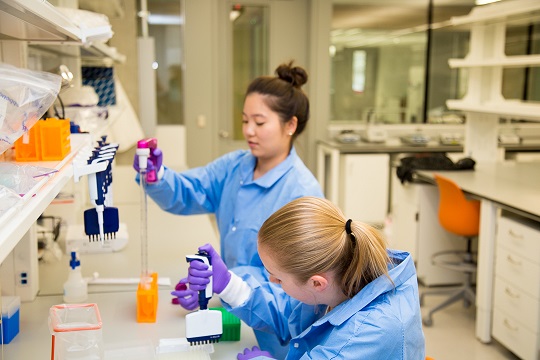Imagine a nasty infection that doesn’t respond to antibiotics. This isn’t the imaginings of a dystopian fiction writer—antibiotic resistance is a real and present danger, and GW’s Antibiotic Resistance Action Center (ARAC) is on the front lines, fighting one of the greatest public health threats of our time.
Experts agree that without action, we will soon be living in a world where antibiotics are no longer a match for drug-resistant bacteria, often called superbugs. An important part of effectively stopping the rise and spread of superbugs is reducing inappropriate use of antibiotics in human medicine and agriculture.
That’s where ARAC comes in. The center, part of Milken Institute School of Public Health, was established to preserve the effectiveness of antibiotics by engaging in research, advocacy, and science-based policy. Led by Director Lance B. Price, ARAC focuses on identifying innovative solutions to antibiotic resistance.
From tracking how eating contaminated chicken can cause drug-resistant urinary tract infections to gauging if the human microbiome can protect people from dangerous pathogens, ARAC’s research is grounded in finding real-world data and addressing critical knowledge gaps. ARAC also translates the science of antibiotic resistance for policymakers, and uses traditional and social media to communicate to a broad audience. The aim: to foster an informed public that understands antibiotic resistance and calls for improved use policies in people and animals.
“ARAC is unique in pairing original research with strategic communication and policy strategies to help combat antibiotic resistance,” says Price. “We need to raise the literacy around antibiotics and antibiotic resistance around the world. People need to recognize that these are valuable resources that we’re on the cusp of losing—and we need to use them carefully.”
Philanthropy advances ARAC’s efforts. Wellcome, a global charitable foundation based in the U.K., recently made a $3.1 million grant to ARAC to study the impacts of California’s new legislation limiting the use of antimicrobial drugs given to livestock raised in the state. Funding for the center also has been provided by the Cornell Douglas Foundation, Applegate, AdvaMedDx, and Merck & Co., Inc.


